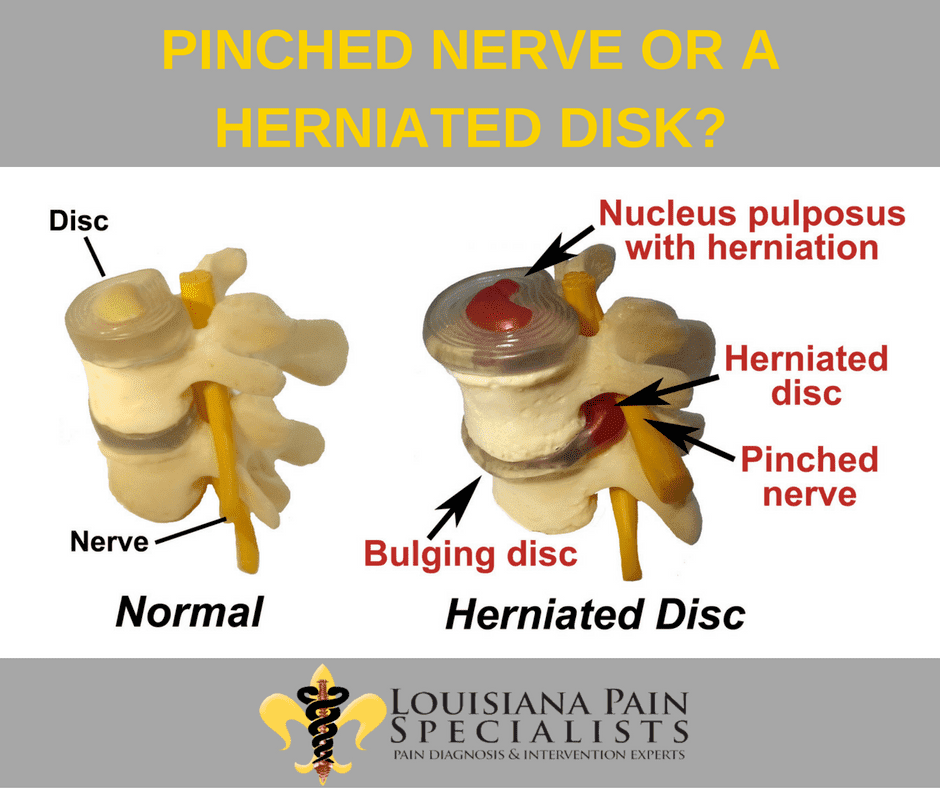
Do you have pain in your neck and back and wonder whether you have a pinched nerve or a herniated disc? Pinched nerves and herniated discs are two of the most common things people reference when they say they have chronic pain in their necks and back. But which one do you have, and what’s the difference between them?
It’s very important to understand that herniated discs and pinched nerves often happen at the same time – mostly because pinched nerves are often caused by a herniated disc pressing against the nerve. Is your mind blown?
What causes herniated discs?
There are several causes for herniated discs, but most often they are caused by gradual wear and tear and disc degeneration that comes with aging. Other causes include:
- Weight – Having too much body weight can cause undue stress and pressure on the discs in your back.
- Job duties – Is your job physically demanding? Do you lift heavy things, or twist your body a lot at work? These can lead to degenerative discs, which can in turn lead to a pinched nerve.
- Genetics – Sometimes, herniated discs just run in the family.
What are the symptoms of a herniated disc?
Symptoms of a herniated disc include:
- Arm or leg pain
- Numbness or tingling
- Weakness
What causes pinched nerves?
Like we said, often, your pinched nerve is hurting because you have a herniated disc. If, however, that’s not the case, there are other things that can cause a pinched nerve. These include:
- Sports or other injury
- Poor posture
- Rheumatoid arthritis
- Obesity
What are the symptoms of pinched nerves?
If you experience the following, you might have a pinched nerve. You’ll notice that the symptoms for pinched nerves are almost identical to the symptoms of a herniated disc.
- Numbness
- Weakness
- Tingling
- Feeling like your limb has “fallen asleep”
- Extreme burning or pain
What are some treatments for herniated discs and pinched nerves?
Although pinched nerves and herniated discs are two different conditions, their treatments are almost identical. For pinched nerves and herniated discs, doctors could recommend the following treatments:
- Nonsteroidal anti-inflammatory drugs – over-the-counter pain relievers like aspirin, ibuprofen and naproxen can help to reduce swelling.
- Oral corticosteroid – These are also administered as a way to reduce swelling and pain.
- Narcotics – Prescription painkillers can be used for brief periods if the pain is severe.
- Steroid injections – cortisone and other types of steroids to reduce inflammation can drastically help your pain levels.
- Physical therapy – to help strengthen muscles
- Muscle relaxers
- Surgery – if all else fails
Do you think you might be suffering from a herniated disc, a pinched nerve, or both? Call our dedicated staff at Louisiana Pain Specialists today to find out how we can help.
